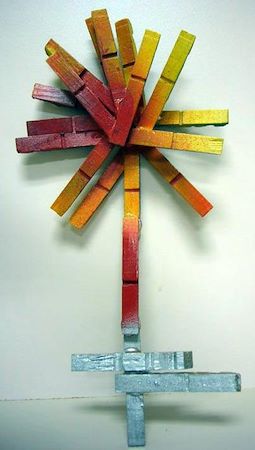
Enrolling a child in school is not just about ABC’s and numbers; extra co-curricular activities such as art classes, workshops and sports are beneficial to a child’s development giving them the active and involving process of explorations – just like play.
In a classroom setup, kids experience memorizing facts, learn techniques to solve problems, spoon fed trying to understand class lectures, assignments and tasks to get answers and test problems without ever being exposed to the big ideas why.
“Children investigate everyday phenomena and discover new things in contrast to information handed down by teachers in a traditional classroom. Young children need a lot of action, not a lot of facts” said Child Psychologist Professor Dr. Lillian Leynes –Juadiong, Ph.d of the Department of Family Life and Child Development of the University of the Philippines College of Home Economics
Parents’ role is to present the opportunities that model their child’s attitudes- curious, questioning and willing to explore and solve problems. For a child, learning how to find answers is considered more important than the answers themselves, the investigation process gives children a joyful risk-taking approach to learning.
Experiential learning is letting children do things by themselves, unlike conventional training – learning through textbooks; it gives them the chance to reflect on their intellectual, emotional and physical involvement which develops personal insights and understanding. Children may start with any of the five senses: taste, touch, smell, sight and sounds.
Science is about the big ideas, the experience on discovering and knowing hands-on. “Scientific inquiry opportunities occur in planned or spontaneous activities, we can guide children’s’ curiosity and help turn a pleasant experience into one that has a deeper learning potential” Dr. Juadiong,Ph.D added.
When parents allow kids to hear about how a flower blooms, describing the colors surrounding them and the origin of how things are made, the craft and the origin of consciousness becomes so exciting. And that’s often not what they feel after each class.
As the cliché goes – Experience is the best teacher. The restless and self-questioning scientific mode of thought is a virtue.
When children get excited about what’s surrounding them, they realize they’ve got the power to think, digest and skeleton pair what they found out. They’ve gain to gauge that they’ve got the power to criticize, to ask questions, to not simply accept that it’s beyond their purview. It’s not only the ideas and the content, but the mode of thinking that ultimately comes across when they’re exposed to science in the way they get to in activities.
Since children are natural scientists and parents are often the child’s first teacher, let these inexpensive experiential activities get your Child exploring.
You may find activities through this helpful link: http://www.cool-kids-craft-ideas.com/
No comments:
Post a Comment